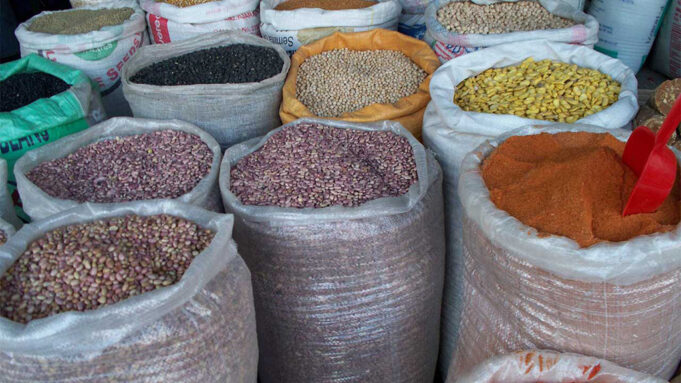To address the food crisis in Nigeria, the Federal Government has rolled out measures to be implemented over the next 180 days.
The Bola Tinubu-led administration admitted that over the past several months, Nigerians have witnessed the escalating cost of food items in all parts of the country.
Speaking on Monday, July 8, 2024, Minister of Agriculture and Food Security, Senator Abubakar Kyari, said there “is virtually no food item that has not had its price raised to a level higher than what a good many Nigerians can afford lamented the escalating cost of food items in the country.”
The minister blamed the food inflation in the country on infrastructural challenges, multiple taxes and levies and then just sheer profiteering by marketers and traders.
The government stated that despite a number of interventions by the Federal Government to make food available and to dampen their prices, regrettably prices have continued to escalate, and in some cases these days, food items are becoming unavailable.
The measures rolled out to address the food crisis include a 150-Day Duty Free Import Window for Food Commodities.
Tinubu to govs: It’s getting late, we must produce food for Nigerians
With this tax exemption, there is suspension of duties, tariffs and taxes for the importation (through land and sea borders) of certain food commodities including Maize, Husked Brown Rice, Wheat and Cowpeas.
However, under this arrangement, imported food commodities will be subjected to a Recommended Retail Price (RRP).
In addition to the importation by private sector, Federal Government will import 250,000MT of Wheat and 250,000MT of Maize. The imported food commodities in their semi-processed state will target supplies to the small-scale processors and millers across the country.
Also, the Federal Government will engage relevant stakeholders to set a Guaranteed Minimum Price (GMP) and mop up surplus assorted food commodities to restock the National Strategic Food Reserve.
The Tinubu-led government has promised a continuous ramp-up production for the 2024/2025 farming cycle through sustained support to smallholder farmers in the ongoing wet season farming through existing government initiatives; strengthen and accelerate Dry Season Farming across the country; embark on aggressive agricultural mechanization and development to reduce drudgery, drive down the cost of production and boost productivity.
The government also plans to collaborate with Sub-National to identify irrigable lands and increase land under cultivation; work closely with the Federal Ministry of Water Resources and Sanitation, to rehabilitate and maintain irrigation facilities under river basin authorities across the federation.
The central government is also working on the development of a strategic engagement for youths and women across the federation for immediate greenhouse cultivation of horticultural crops such as tomatoes and pepper to
increase production volume, stabilize prices, and address food shortages.
One of the measures is fast-tracking ongoing engagements with the Nigerian Military to rapidly cultivate arable lands under the Defence Farms Scheme, while encouraging other Para-Military establishments to put secured available arable lands to cultivation.
Speaking on the measures, the minister said: “The affordability crisis in our food security system has been indexed by the data from the National Bureau of Statistics which by the last count, had put food inflation at 40.66%.
“We have heard the cries of Nigeria over the prices of food items and condiments, with some now describing tomato as gold and proposing a variety of recipes to prepare soups and dishes with some of the overpriced food items. What in the past were regarded as common items such as yam, plantain, potato now command excessively high figures and Nigerians are right to wonder how and why things are the way they are.”
- Uba Sani Signs Executive Order, raises academics’ retirement age to 65 - December 20, 2024
- Wike has no time for political Hushpuppis – Aide - December 20, 2024
- Wike gives Abuja land owners fresh ultimatum to pay C-of-O - December 20, 2024










